Types of Heating
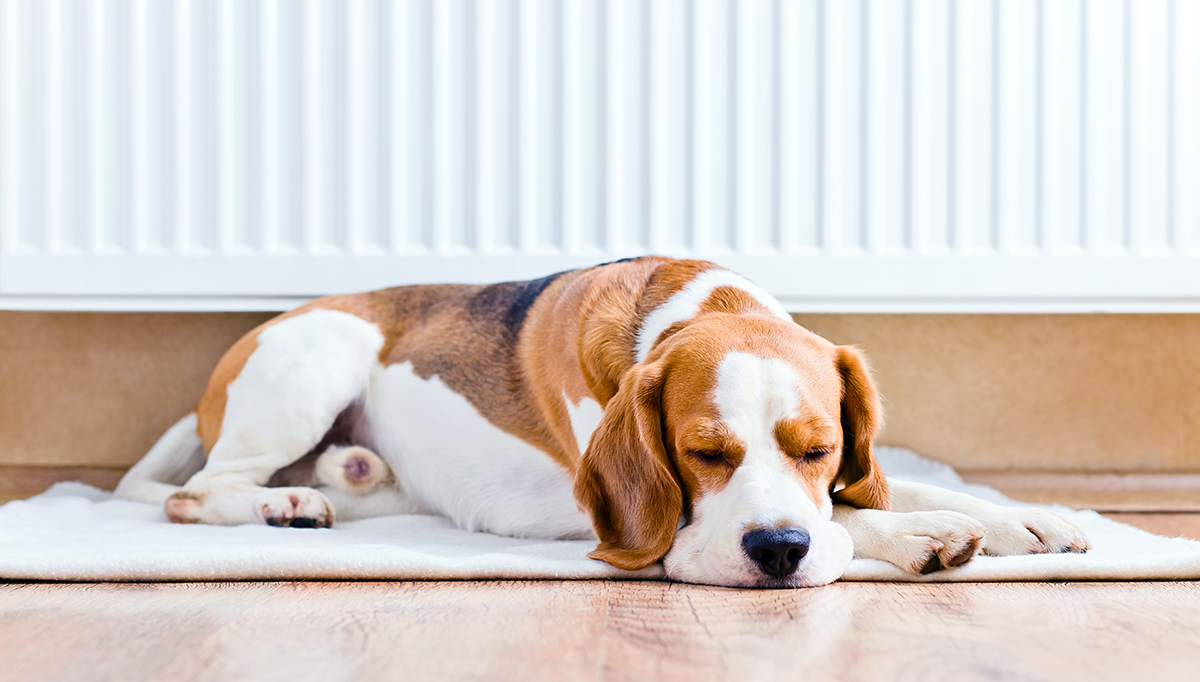
Published: Friday, 05 May 2023
Prepare for those colder months, by getting cosy with the right type of heating suited for you and your home (especially crucial, as 40% of your energy bill is spent on electricity and gas) - cosy nights ahead.
What is central heating?
Central heating allows heat to be generated and distributed throughout a building. Producing heat at one point and then distributing it to the rest of the building through air, steam, or water. Central heating systems are especially crucial within colder climates, to heat buildings.
It is most likely that you already have a central heating system in your home; Statistics show that 95% of UK homes have a central heating system, with 86% having a gas central heating system.
These systems can even distribute hot water to the taps in your home, with homes with a hot water tank being more likely to have a central heating system heating their water.
How does central heating help to heat your home?
Although each central heating system operates differently depending on system types. The majority of households have wet central heating systems/
Wet central heating systems in particular, often include a heating appliance such as a combi boiler. This combi boiler is connected to pipework and radiators which circulate throughout the building. From there, either water or air is heated in one centralised location within the building.
Operating using two pipes, wet systems use one of the pipes to pump hot water into each radiator. The other pipe then collects the cooled water and returns it to the boiler for reheating. Two pipes are more commonly used as hot water which travels through just one radiator, can lose its temperature throughout the system.
During the heating process, the boiler burns fuel to ignite a flame which heats a copper pipe containing water. Burning gas or oil is the most popular option to fuel boilers as when the copper pipe increases in temperature, the heat generated is transferred to the water within the pipe.
Both types of boilers will send heated water to the hot water storage tanks or handwash tap If sent back to the storage tank, a pump transports either the hot water or air from the boiler into the radiators through pipes.
As combi boilers heat water on demand, there is no need for a storage tank, making things more cost-effective. The water circulating from the boiler to the radiators warms the room through convection, this is a process that heats the cooler air in the room.
Temperatures can be monitored using thermostats, allowing you to personalise your settings by switching the boiler on when the room temperature has dropped below the setting.
Types of central heating
Eight types of central heating systems can be used to provide warmth and comfort to homes and buildings. Some of the most common types include:
Gas-fired central heating:
This type of heating system uses natural gas or propane to heat water or air, which is then circulated throughout the building. It typically consists of a boiler or furnace, a heat exchanger, and a network of pipes or ducts.
Oil-fired central heating:
Similar to gas-fired systems, oil-fired central heating uses oil as the fuel source. Oil is burned in a boiler or furnace, and the resulting heat is transferred to water or air, which is then circulated throughout the building.
Electric central heating:
This system uses electricity to generate heat, either through electric resistance heaters or heat pumps. Electric heating systems can be more expensive to operate than gas or oil systems, but they are generally cleaner and more environmentally friendly.
Heat pumps:
Heat pumps are energy-efficient devices that can provide both heating and cooling. They work by transferring heat from the outside air or ground to the inside of a building. Air-source and ground-source heat pumps are the two most common types.
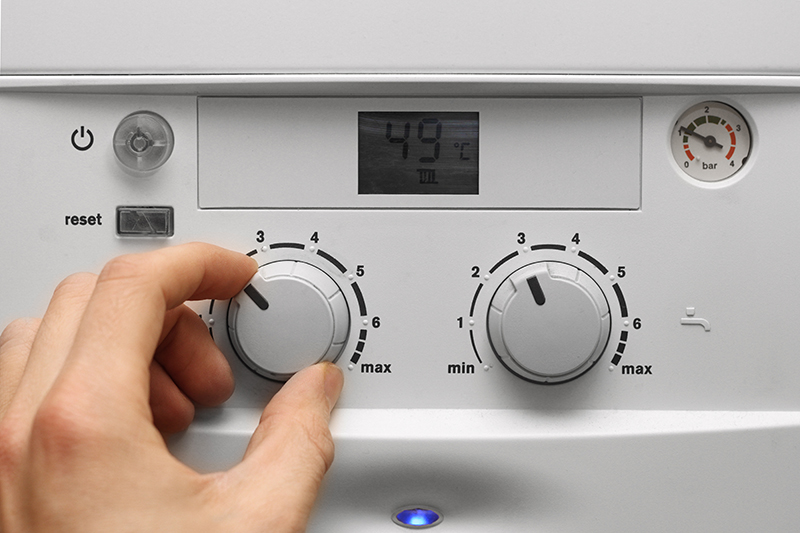
District heating:
District heating systems provide heat to multiple buildings from a central plant, usually through a network of hot water or steam pipes. These systems are more common in urban areas and can be powered by a variety of fuel sources, including natural gas, oil, biomass, or waste heat from industrial processes.
Biomass central heating:
This system uses organic materials, such as wood pellets, chips, or logs, as fuel to produce heat. Biomass systems can be more environmentally friendly compared to fossil fuel-based systems, as they often utilise locally sourced and renewable materials.
Solar thermal heating:
Solar thermal systems use solar collectors to absorb sunlight and convert it into heat. This heat is then used to warm water or air, which is circulated throughout the building. Solar thermal systems can be combined with other types of heating systems to provide a more consistent and reliable source of heat.
Hydronic radiant floor heating:
This type of central heating system uses a network of pipes embedded in the floor to circulate hot water or a glycol solution. The heat radiates up from the floor, warming the room evenly and efficiently. Radiant floor heating systems can be used in conjunction with other heating systems, such as boilers or heat pumps.
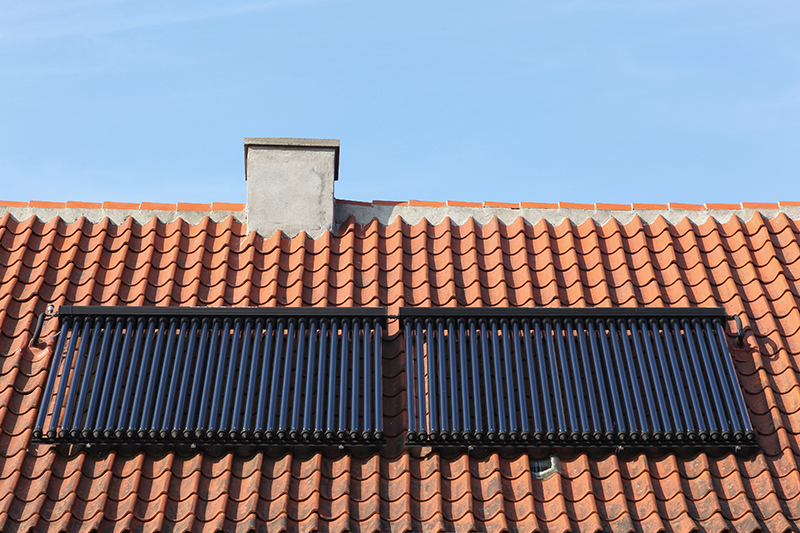
Types of electric heating v gas heating
Electric and gas heating systems are two common ways to heat homes and buildings. Each has its advantages and disadvantages, and the choice between them depends on factors such as energy costs, climate, and personal preferences. Here is a comparison of the two types of heating systems:
Electric Heating:
Advantages:
Easy installation: Electric heating systems are generally easier and less expensive to install compared to gas systems, as they do not require gas lines or venting.
Low maintenance: Electric heating systems have fewer moving parts and typically require less maintenance than gas systems.
Safety: Electric heating systems do not produce combustion gases, so there is no risk of gas leaks or carbon monoxide poisoning.
Environmentally friendly: When powered by renewable electricity, electric heating systems have a lower environmental impact than gas systems.
Disadvantages:
Higher operating costs: Electricity can be more expensive than natural gas in some regions, leading to higher operating costs for electric heating systems.
Lower efficiency: Electric resistance heaters are generally less efficient than gas heating systems, although heat pumps can be more efficient in certain circumstances.
Gas Heating:
Advantages:
Lower operating costs: Natural gas is often less expensive than electricity, leading to lower operating costs for gas heating systems.
High efficiency: Modern gas heating systems, such as condensing furnaces and boilers, can be very efficient, with some models achieving over 95% efficiency.
Fast heating: Gas systems typically heat spaces more quickly than electric systems.
Disadvantages:
Installation and maintenance: Gas heating systems can be more complex and expensive to install, particularly if gas lines need to be extended or installed. They also require regular maintenance to ensure safety and efficiency.
Environmental impact: Burning natural gas produces carbon dioxide and other greenhouse gases, contributing to climate change.
Safety concerns: Gas heating systems pose a risk of gas leaks and carbon monoxide poisoning if not properly maintained and vented.
Found out more about electric V gas heating here.
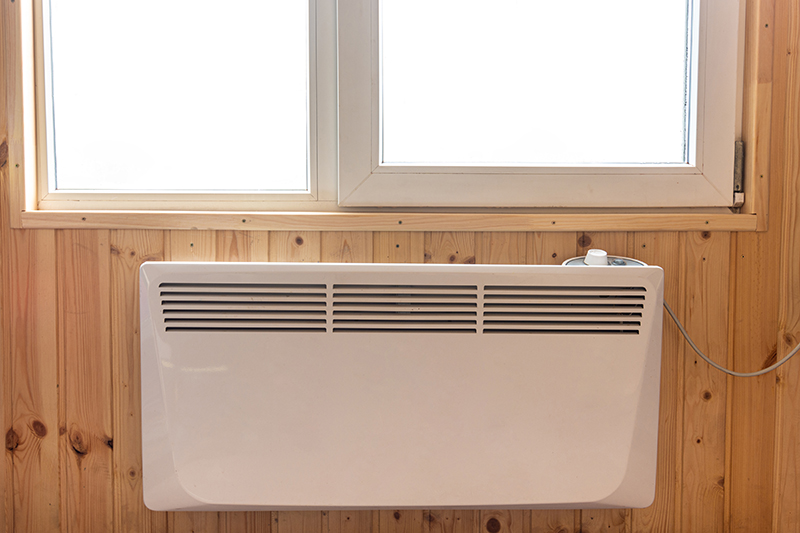
FAQs
What is the best type of heating system?
There is no one-size-fits-all answer to the question of the best type of heating system, as the most suitable option depends on various factors such as climate, energy prices, availability of fuel sources, building size, insulation, and personal preferences. However, here are some general considerations to take into account if you are looking for particular benefits:
Energy efficiency: Heat pumps, especially ground-source or geothermal heat pumps, tend to be among the most energy-efficient options alongside electrical options. They can provide both heating and cooling, and their efficiency often leads to lower operating costs in the long run.
Environmental impact: Solar thermal heating systems and biomass central heating systems are more environmentally friendly compared to fossil fuel-based systems, as they use renewable energy sources. Heat pumps & electrical, particularly those powered by renewable electricity, are also a greener choice.
Cost of installation and maintenance: The initial cost of installing a heating system can vary widely. For example, installing a heat pump or a solar thermal system tends to be more expensive upfront than installing a gas or oil-fired system. However, maintenance and operational costs should also be considered, as some systems have lower running costs and may save money over time.
Availability of fuel sources: The availability of fuel sources, such as natural gas, oil, or biomass, in your region, may influence the choice of heating system. If certain fuels are not readily available or their prices are volatile, it may be more cost-effective to choose a different type of system.
Space requirements: Some heating systems, like ground-source heat pumps or biomass boilers, require more space for installation. Consider the available space in your property before choosing a system.
Compatibility with existing systems: If you already have a heating system installed, it's important to consider compatibility with new equipment. Some systems can be easily integrated, while others may require significant modifications.
In summary, the best type of heating system for your specific needs will depend on a combination of factors. It's essential to research and consult with professionals to determine which option is the most suitable for your circumstances.
How do I know what central heating system I have?
As 86% of houses in the UK have a wet central heating system that uses gas fuel. You’re most likely to have this as well - If you do not, yours will most likely differ by the fuel or boiler type.
How much is a new central heating system?
When it comes to costs, all central heating systems vary. Costs can also change depending on the size of your property, the type of boiler being installed, and the heating engineer completing the work.
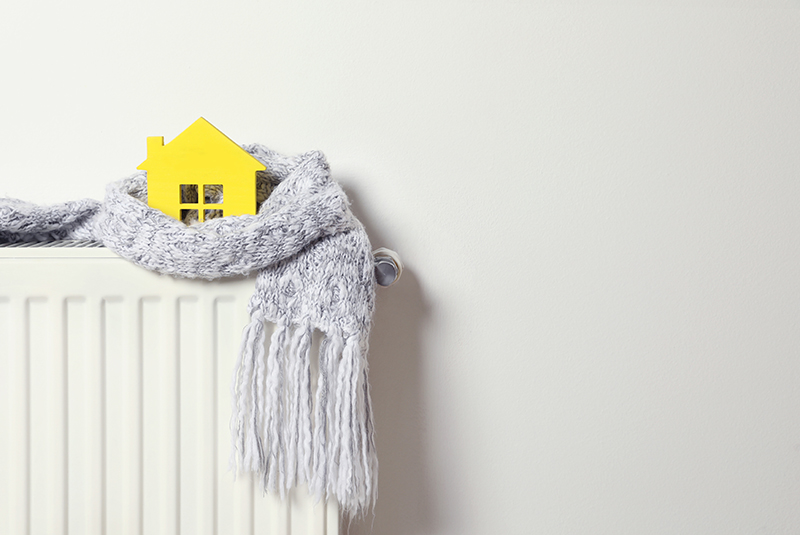
When do I need a new central heating system?
Is your central heating not working as well as it used to? Here are some telltale signs that it may need replacing:
1. Age: The lifespan of a central heating system depends on the type, quality, and maintenance. Gas-fired furnaces and boilers generally last 15-20 years, while heat pumps can last 10-15 years. If your system is approaching or has exceeded its expected lifespan, it may be time to consider a replacement.
2. Frequent repairs: If your heating system requires frequent repairs or has recurring issues, it might be more cost-effective to replace it with a new, more reliable system.
3. High energy bills: Older heating systems tend to be less energy-efficient than newer models. If you notice a significant increase in your energy bills, it may be due to an ageing and inefficient system. Upgrading to a more energy-efficient system can help you save on energy costs in the long run.
4. Uneven heating: If some rooms in your home are consistently colder or warmer than others, it could be a sign of an inefficient or improperly sized heating system. Replacing your system with a properly sized one can help ensure even and comfortable heating throughout your home.
5. Noisy operation: Unusual noises, such as banging, rattling, or squealing, may indicate issues with your heating system's components. If these noises persist, it may be time to consider a new system.
6. Poor indoor air quality: An old or poorly maintained heating system can contribute to poor indoor air quality, leading to increased dust and allergens. If you notice a decline in air quality, it might be time to upgrade your system.
7. Changes in comfort needs: If you've made significant changes to your home, such as an addition or renovation, your existing heating system may no longer be adequate to meet your needs. A new system can help ensure your home is heated efficiently and comfortably.
Before deciding to replace your central heating system, consult with a professional HVAC technician. They can assess your current system, provide recommendations on whether to repair or replace it and help you choose the best new system for your needs and budget. Keep in mind that regular heating maintenance can help extend the life of your heating system and improve its efficiency - with one tip being to only turn your heating on when it drops to a certain point.
Looking to explore different types of central heating?
YESSS Electrical can help warm up your home all year round using high-quality heating, heating controllers and water heaters.
Have any further questions? Please contact our friendly professionals today.

